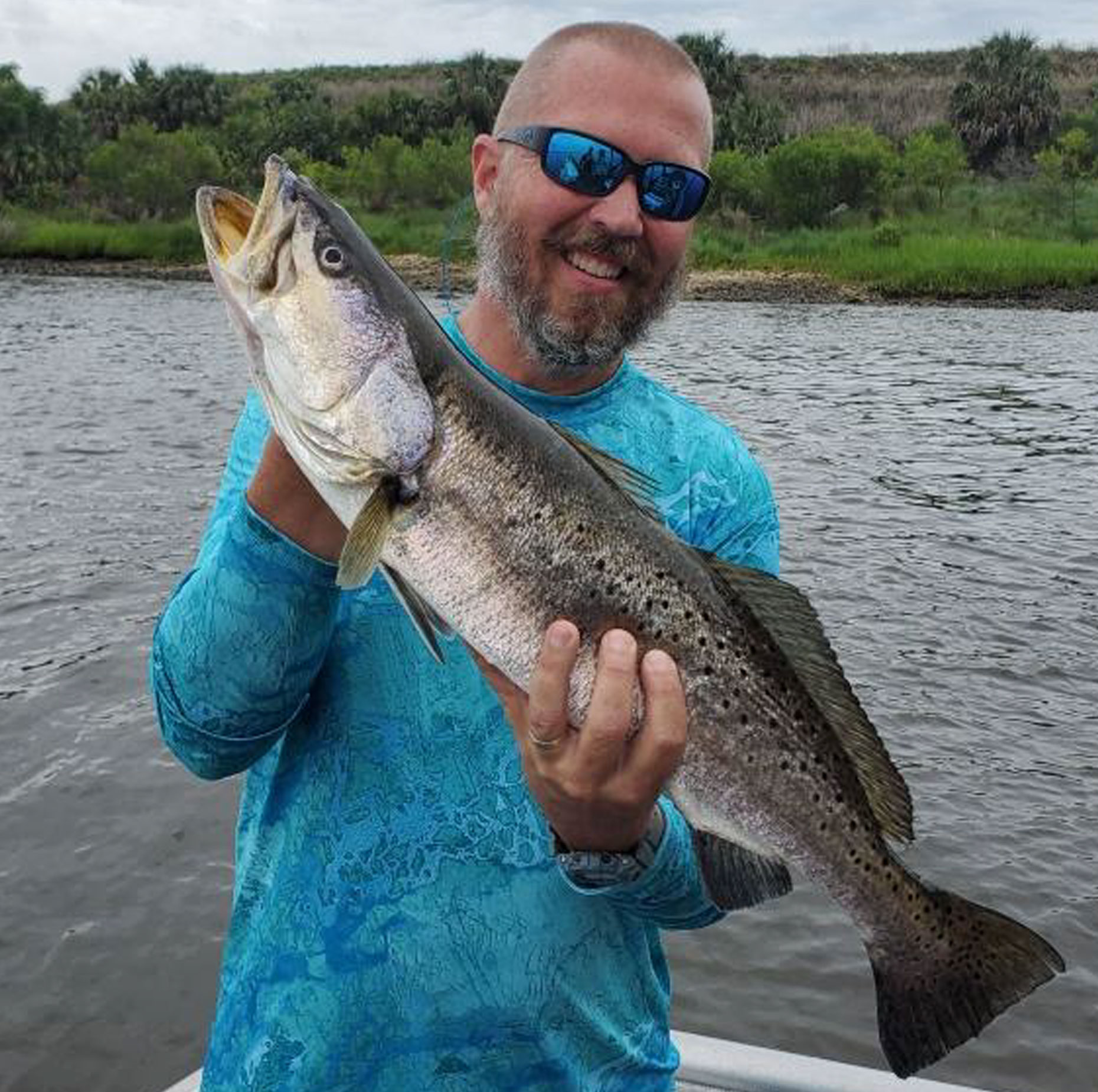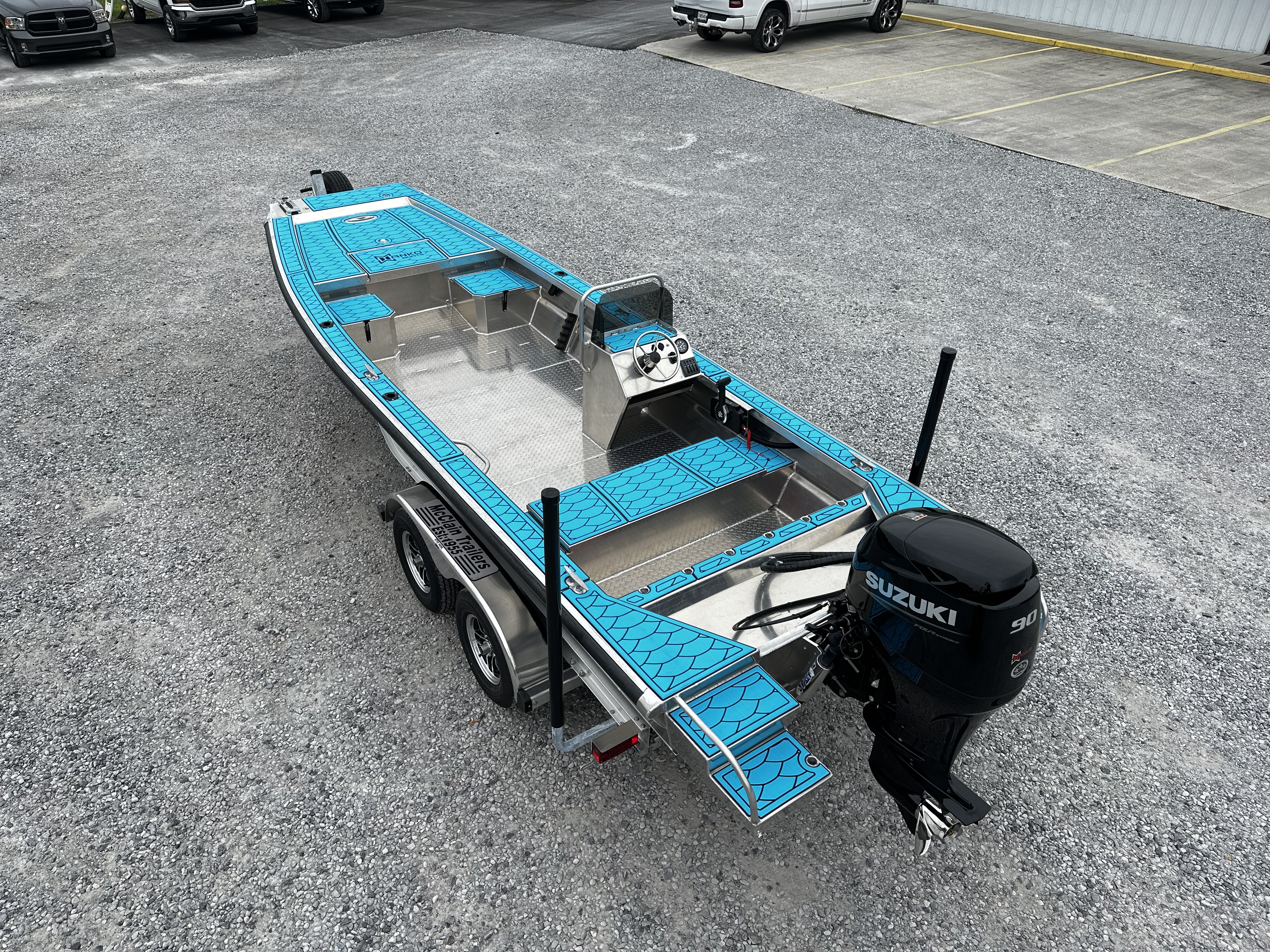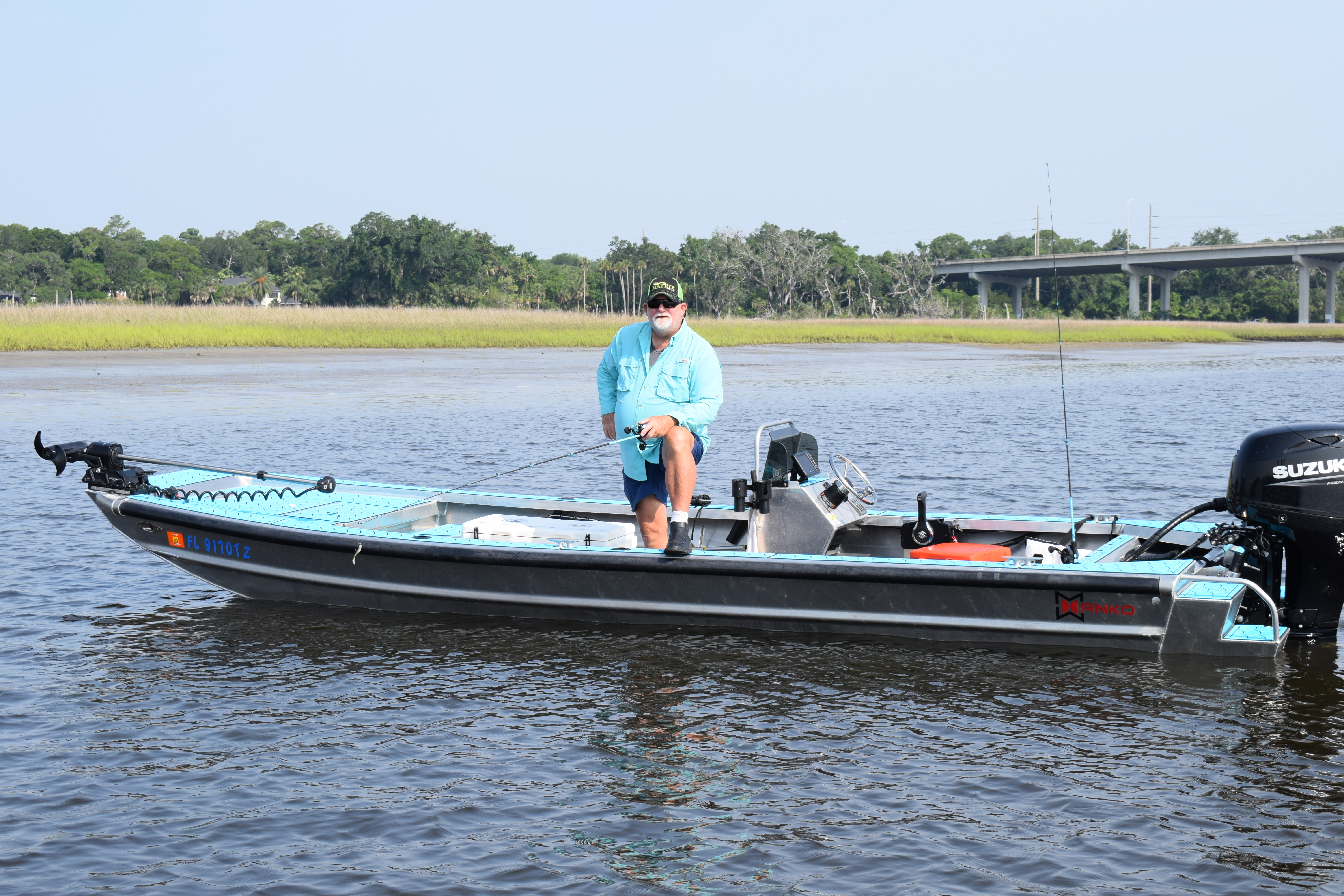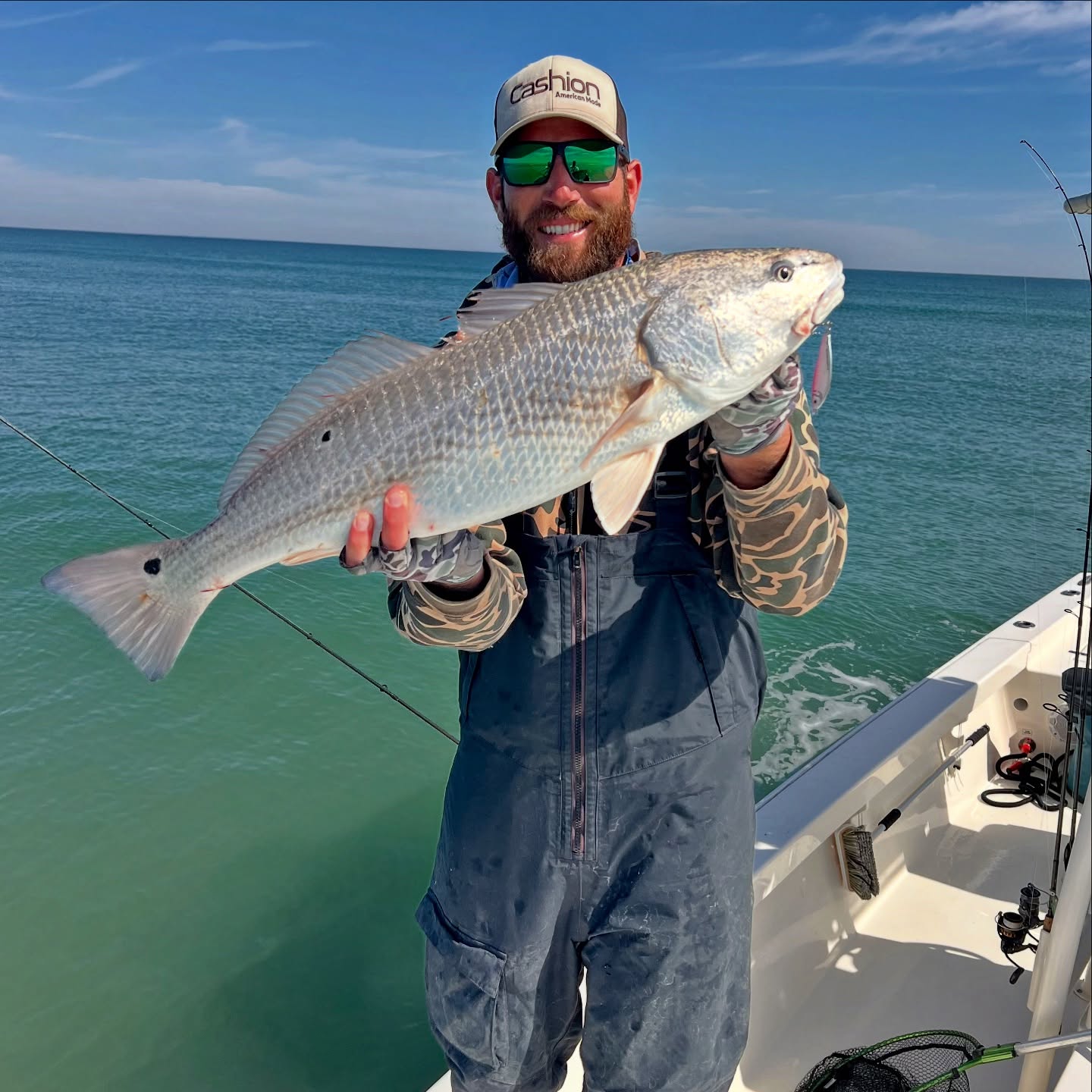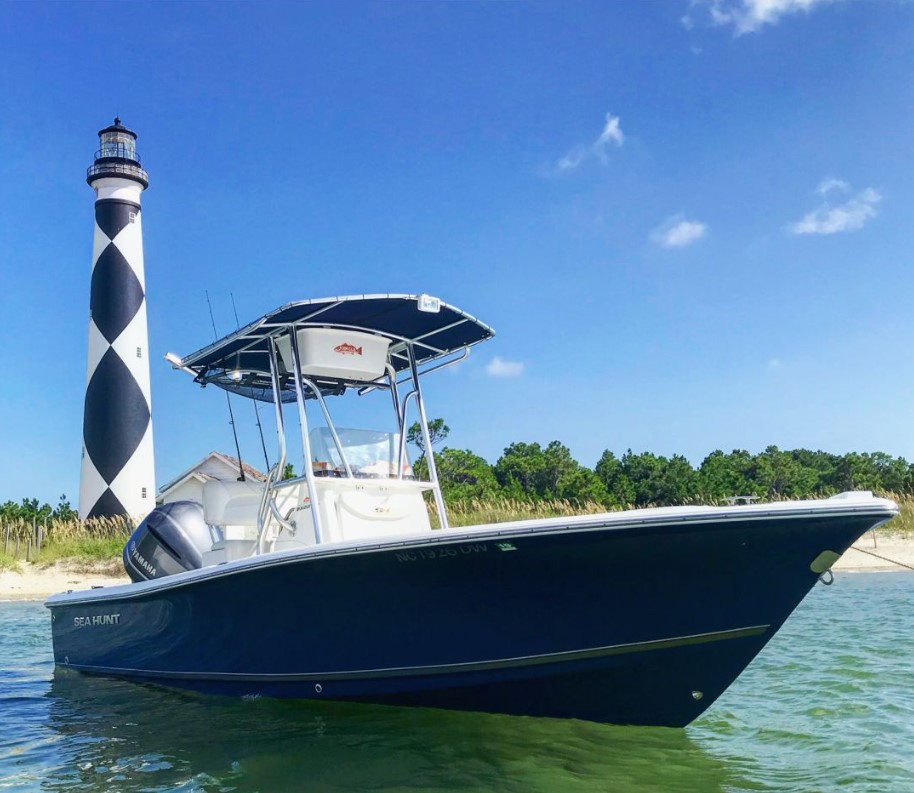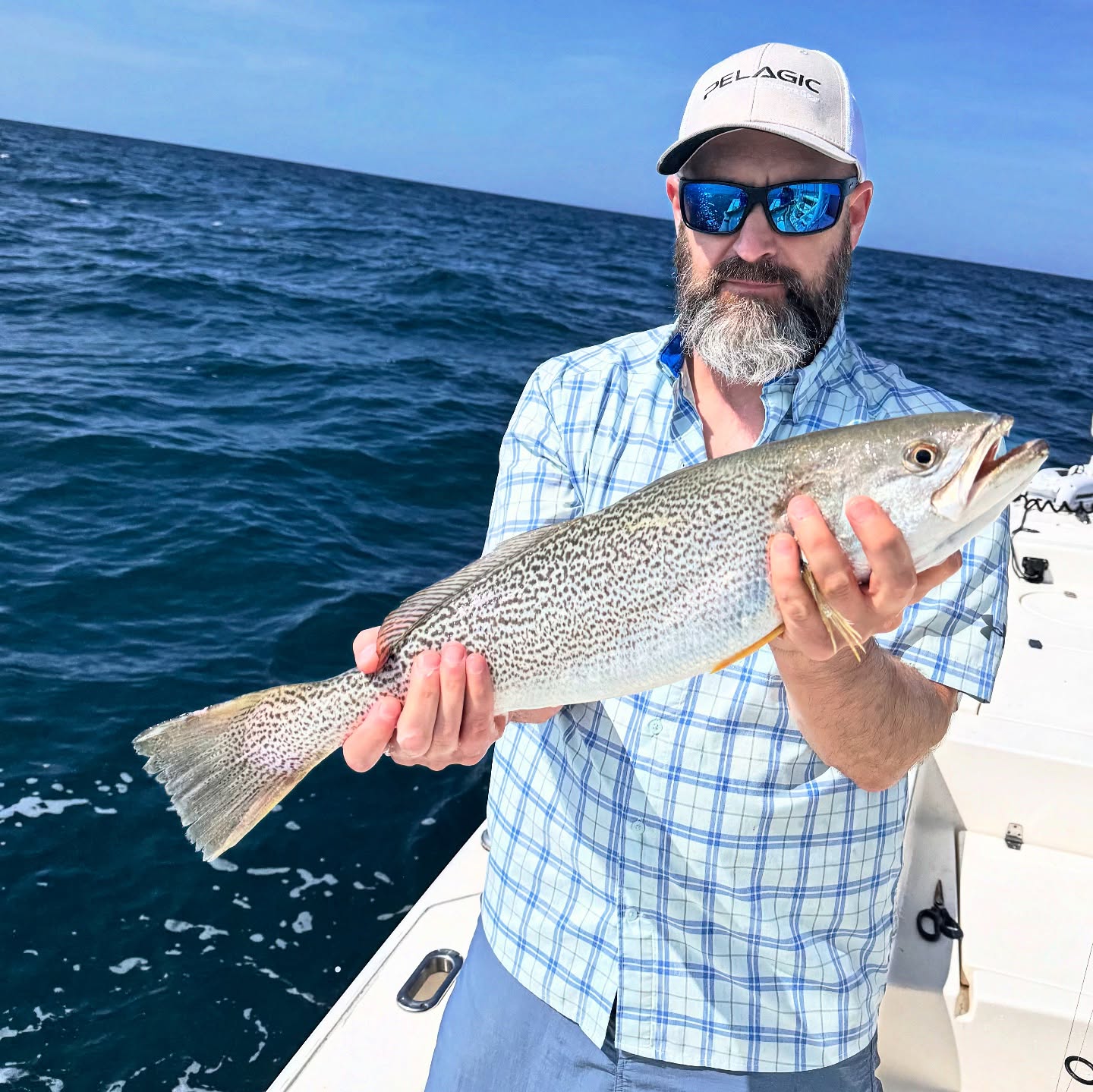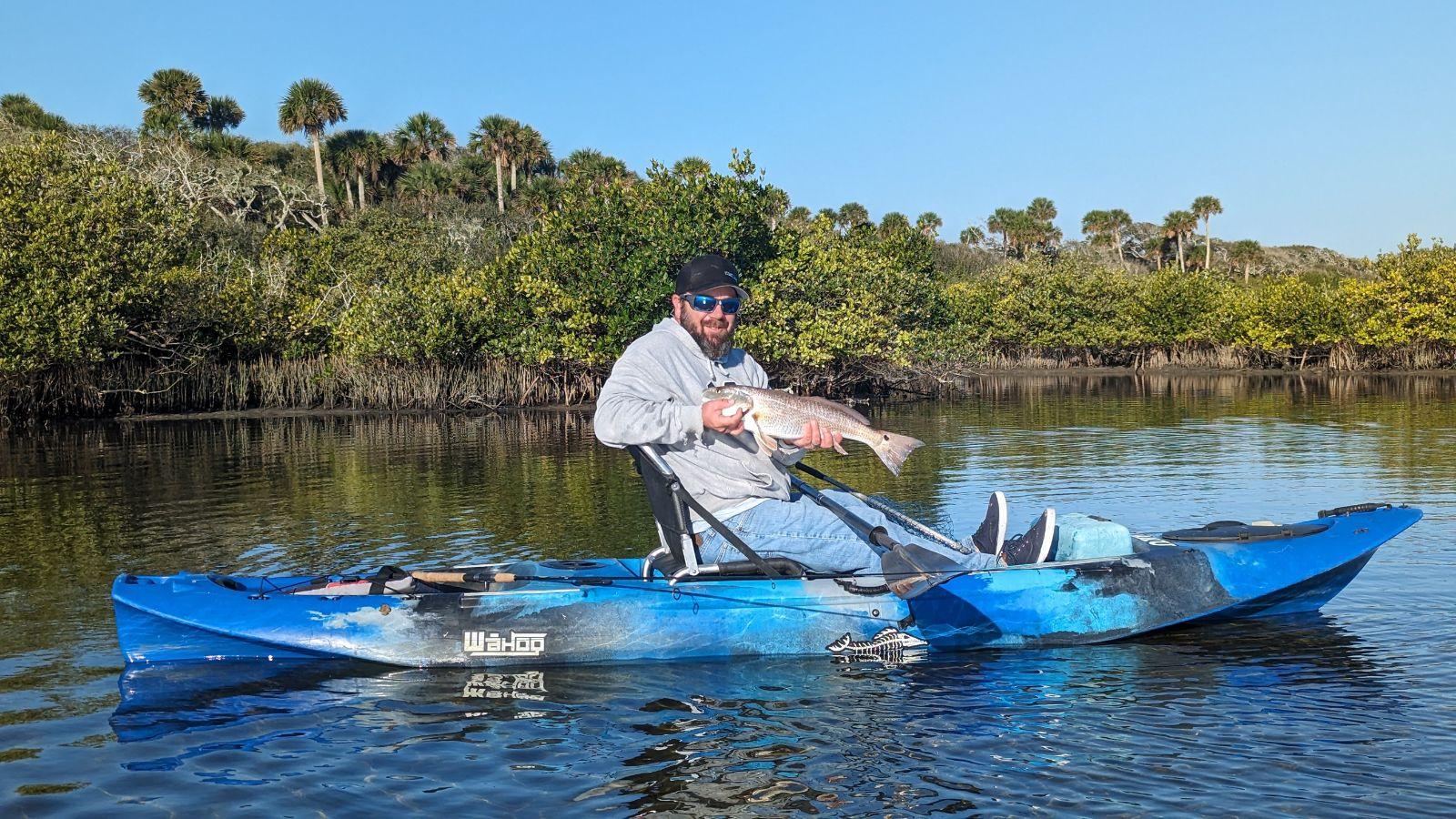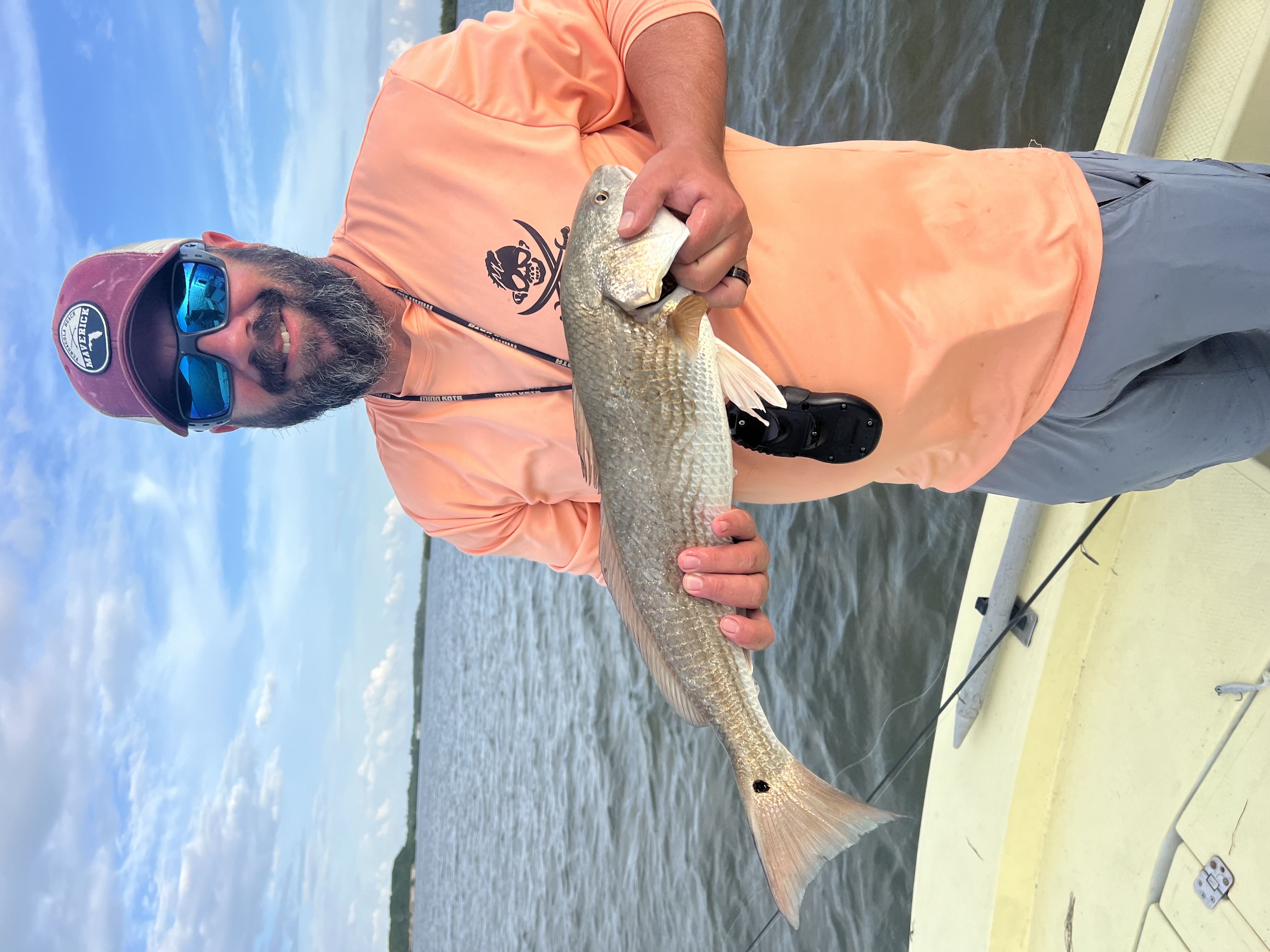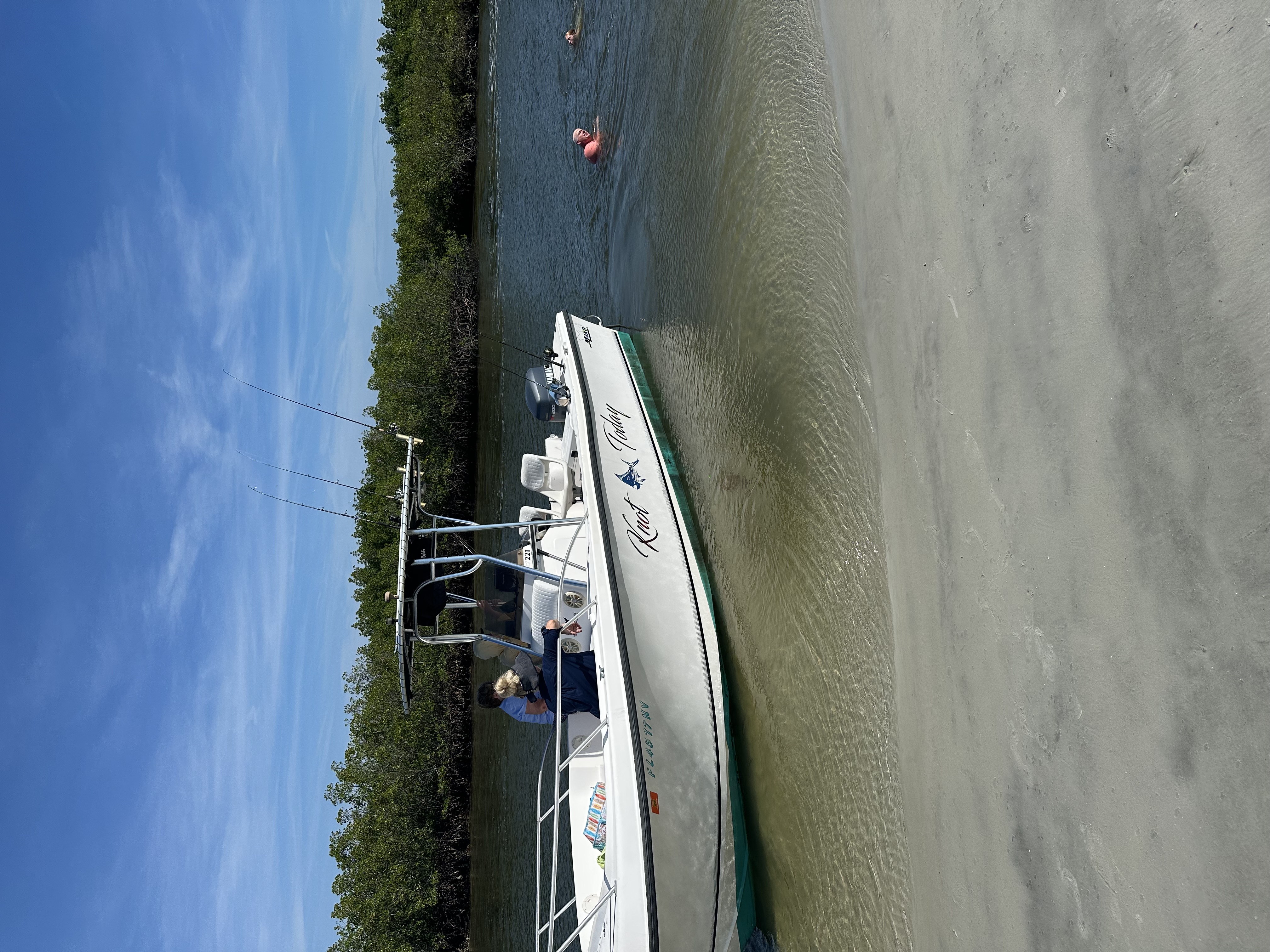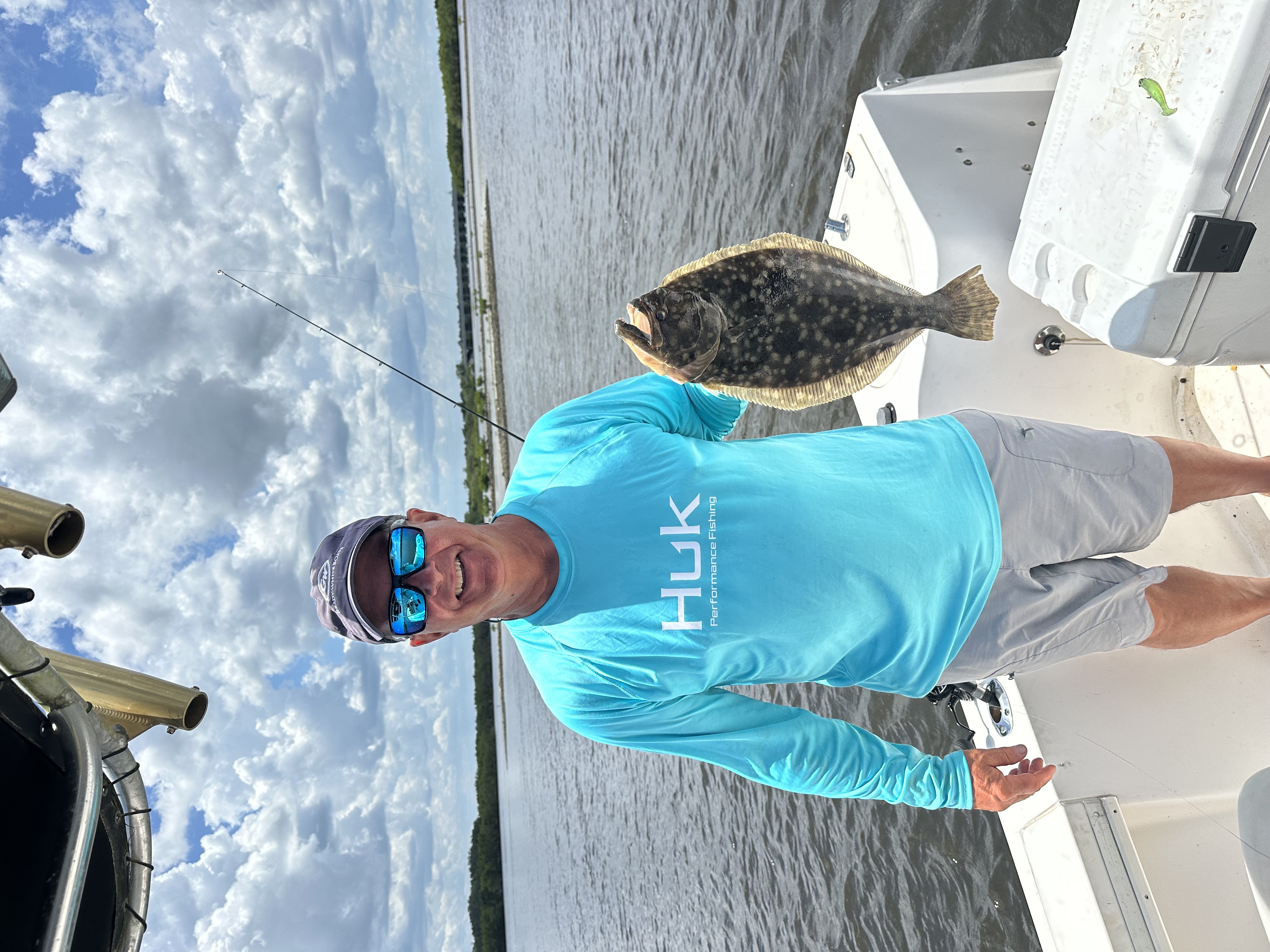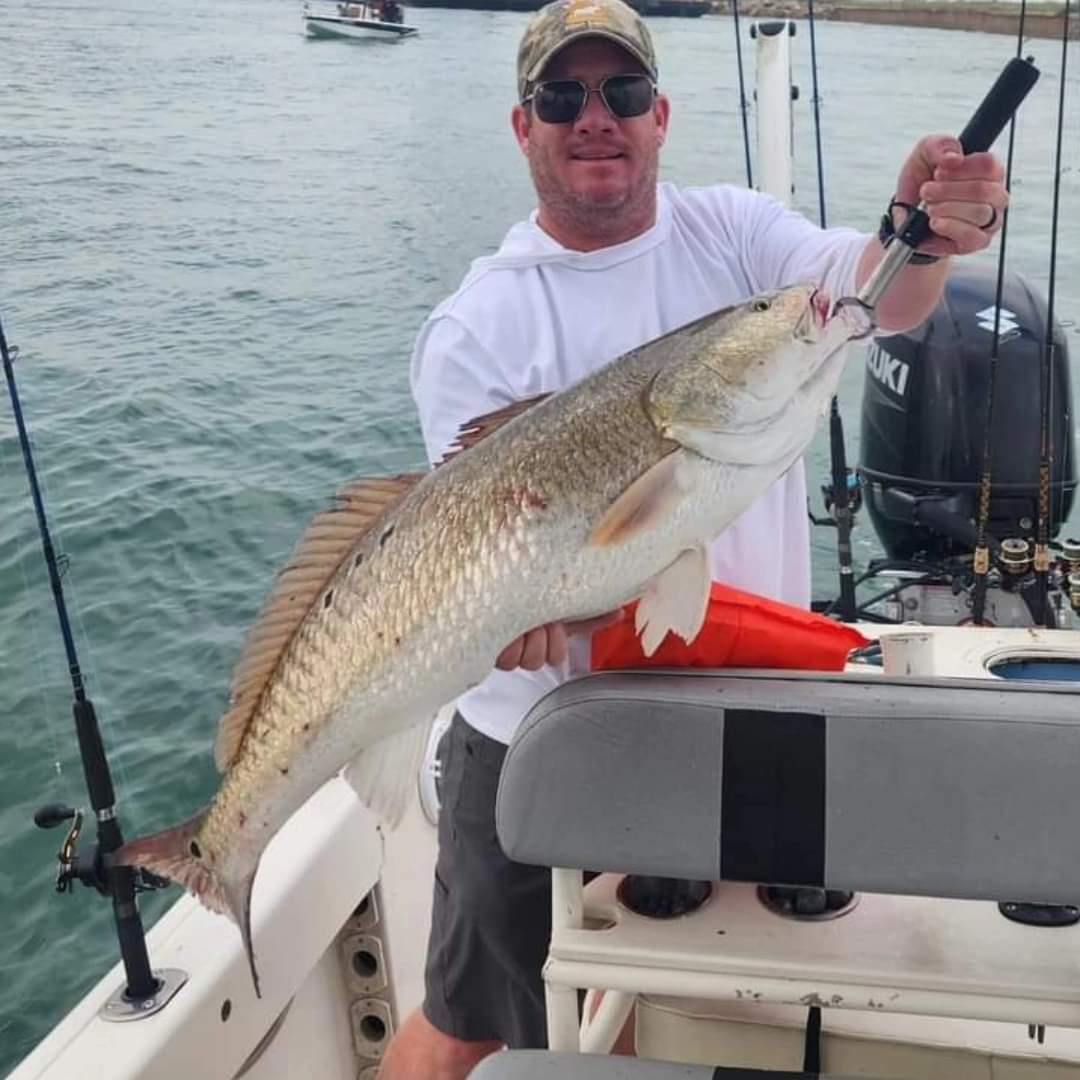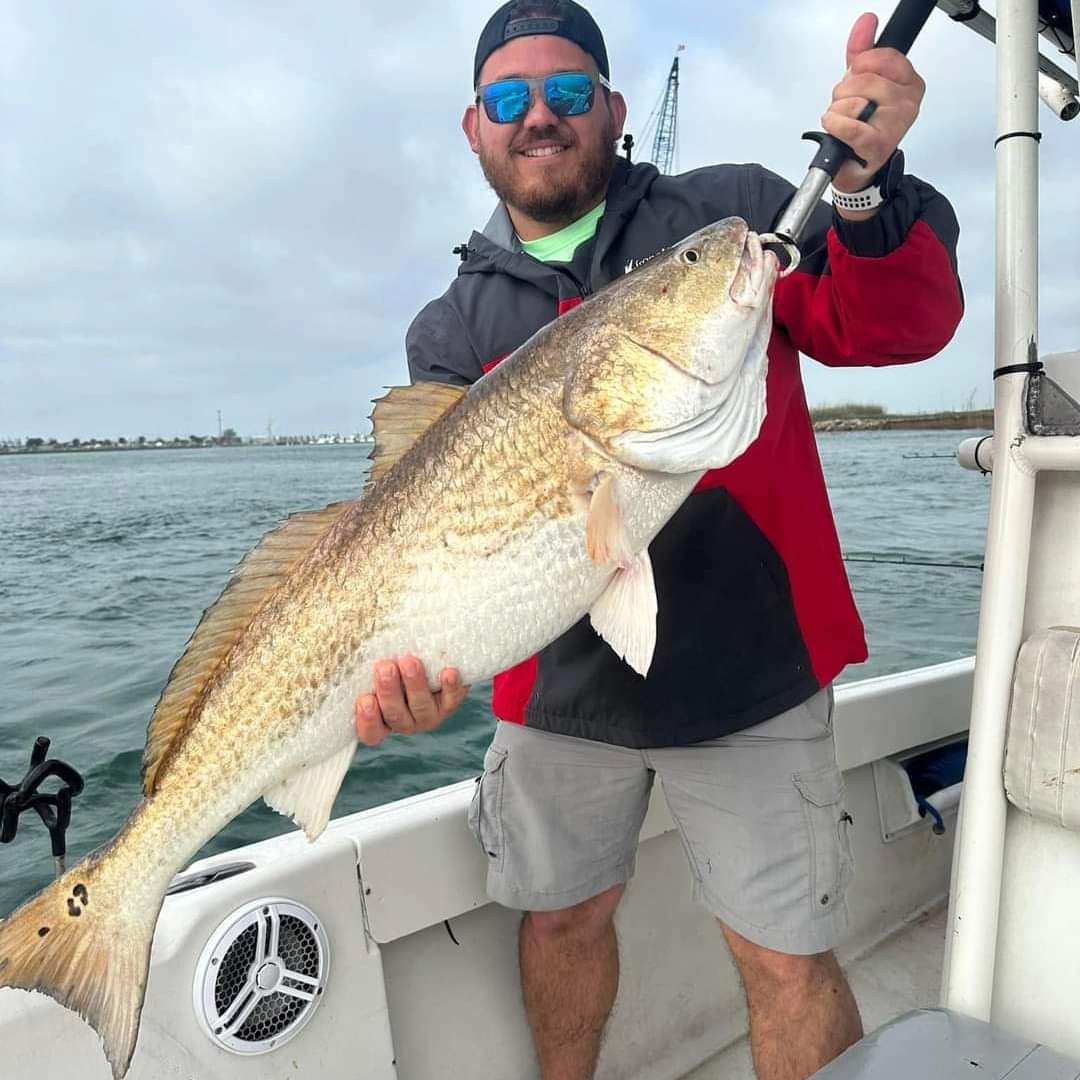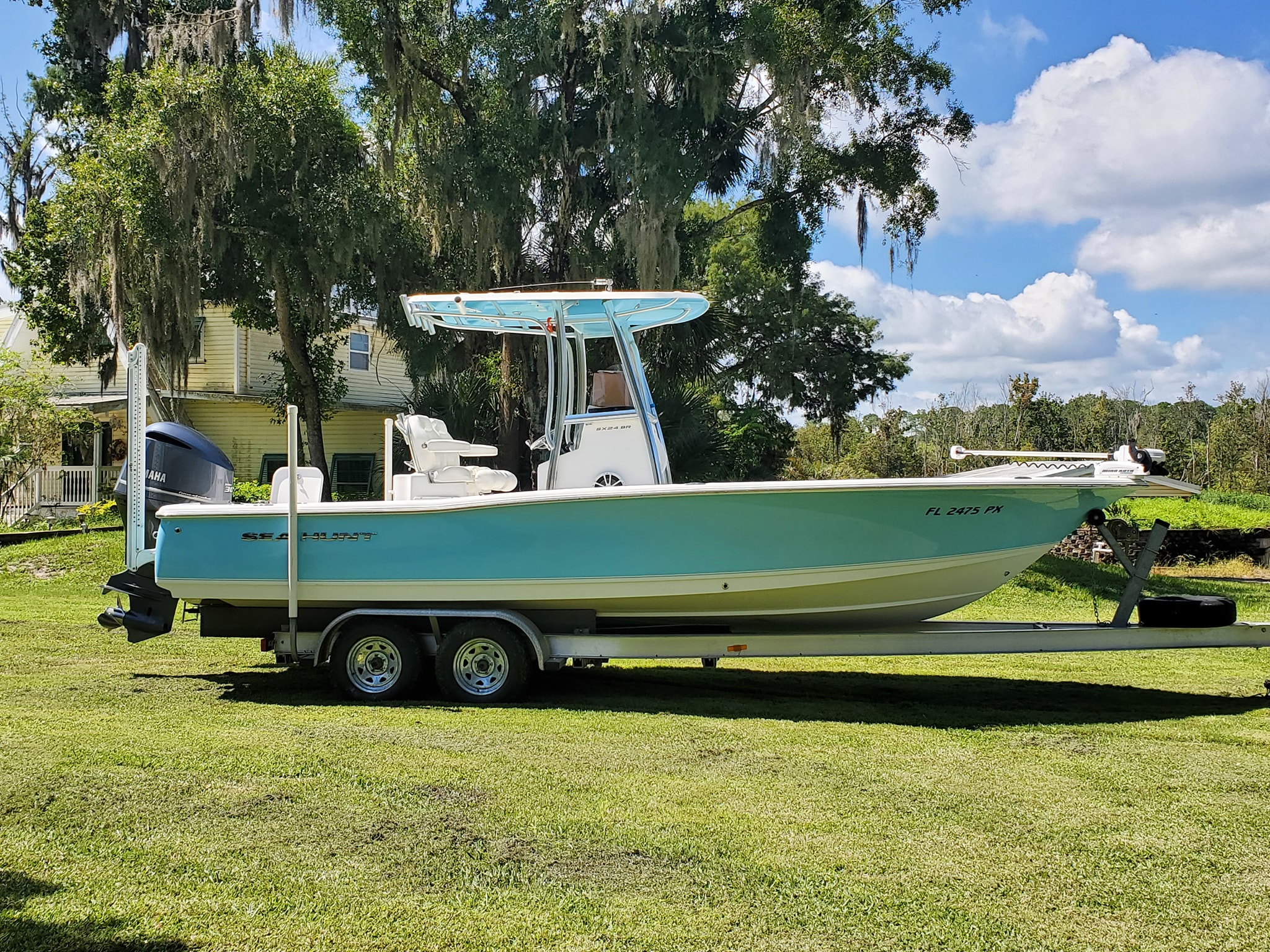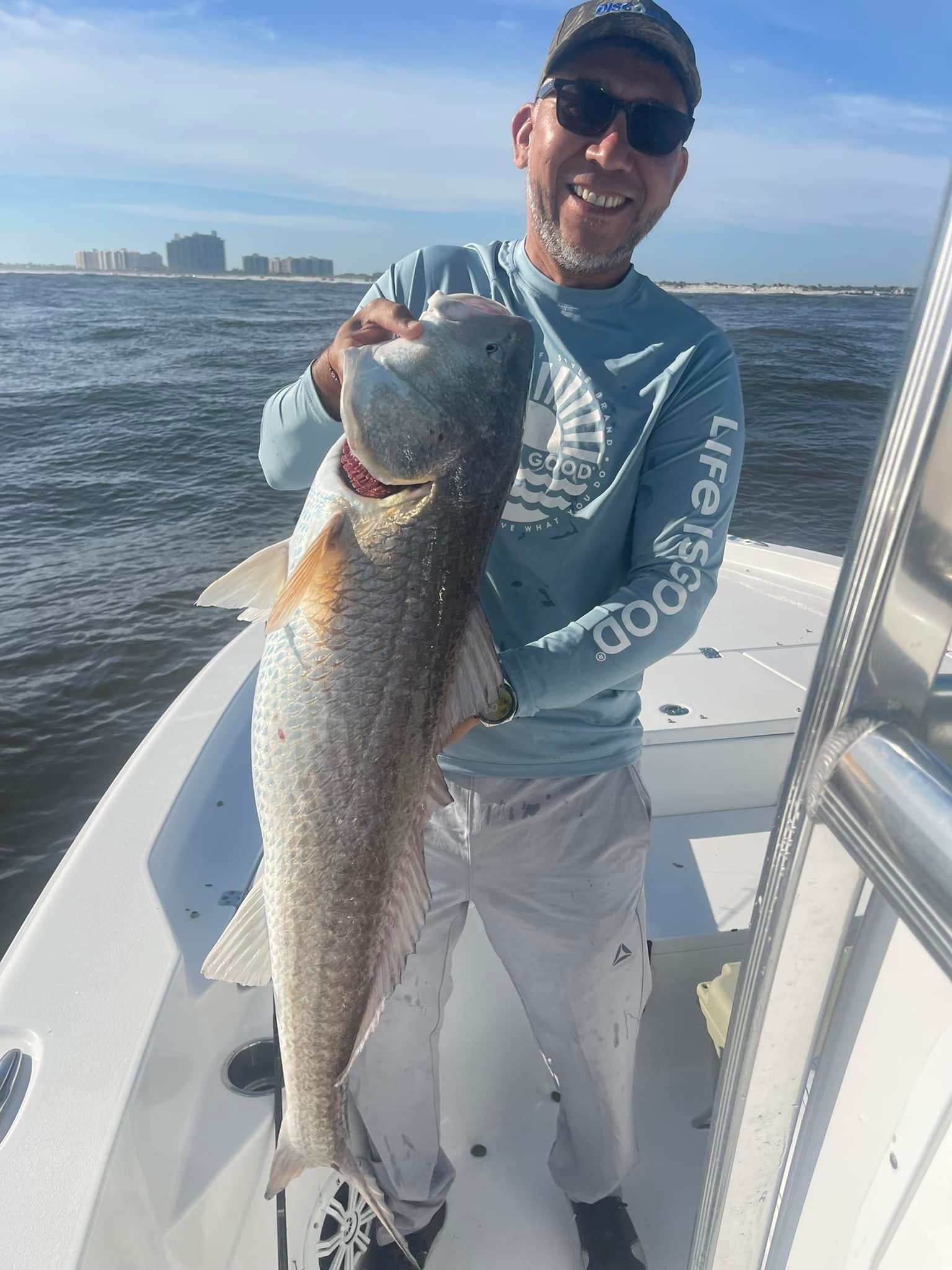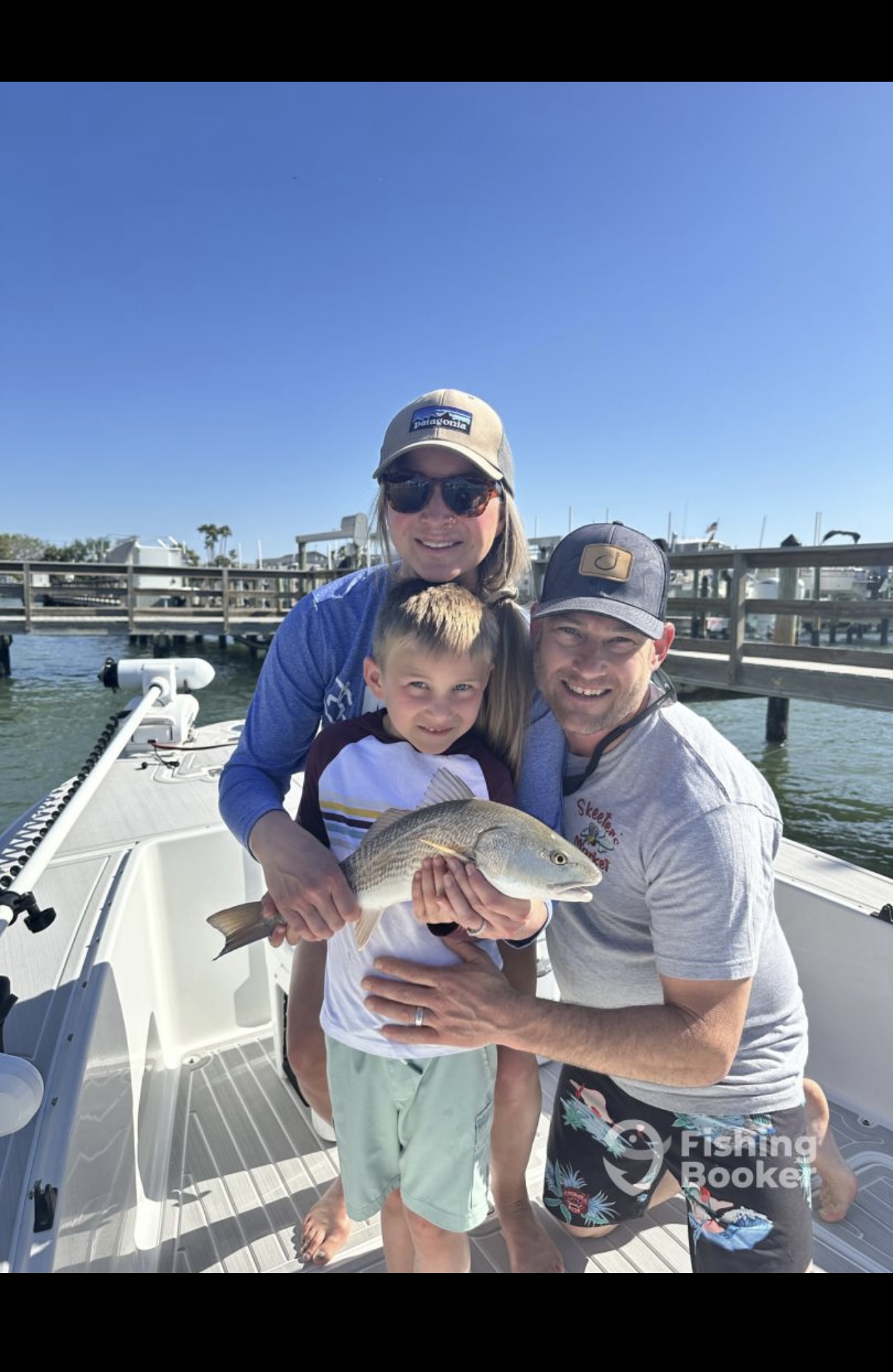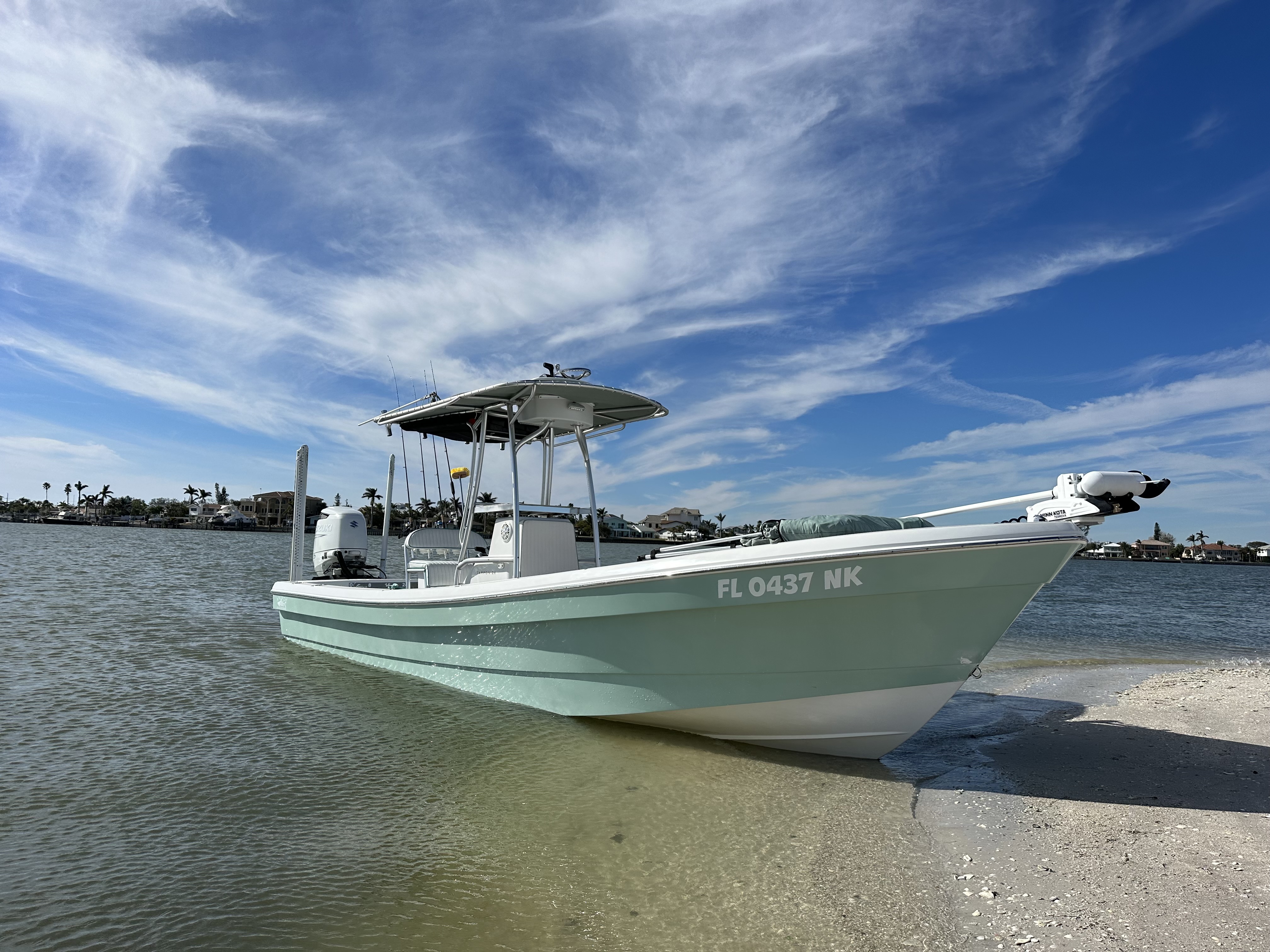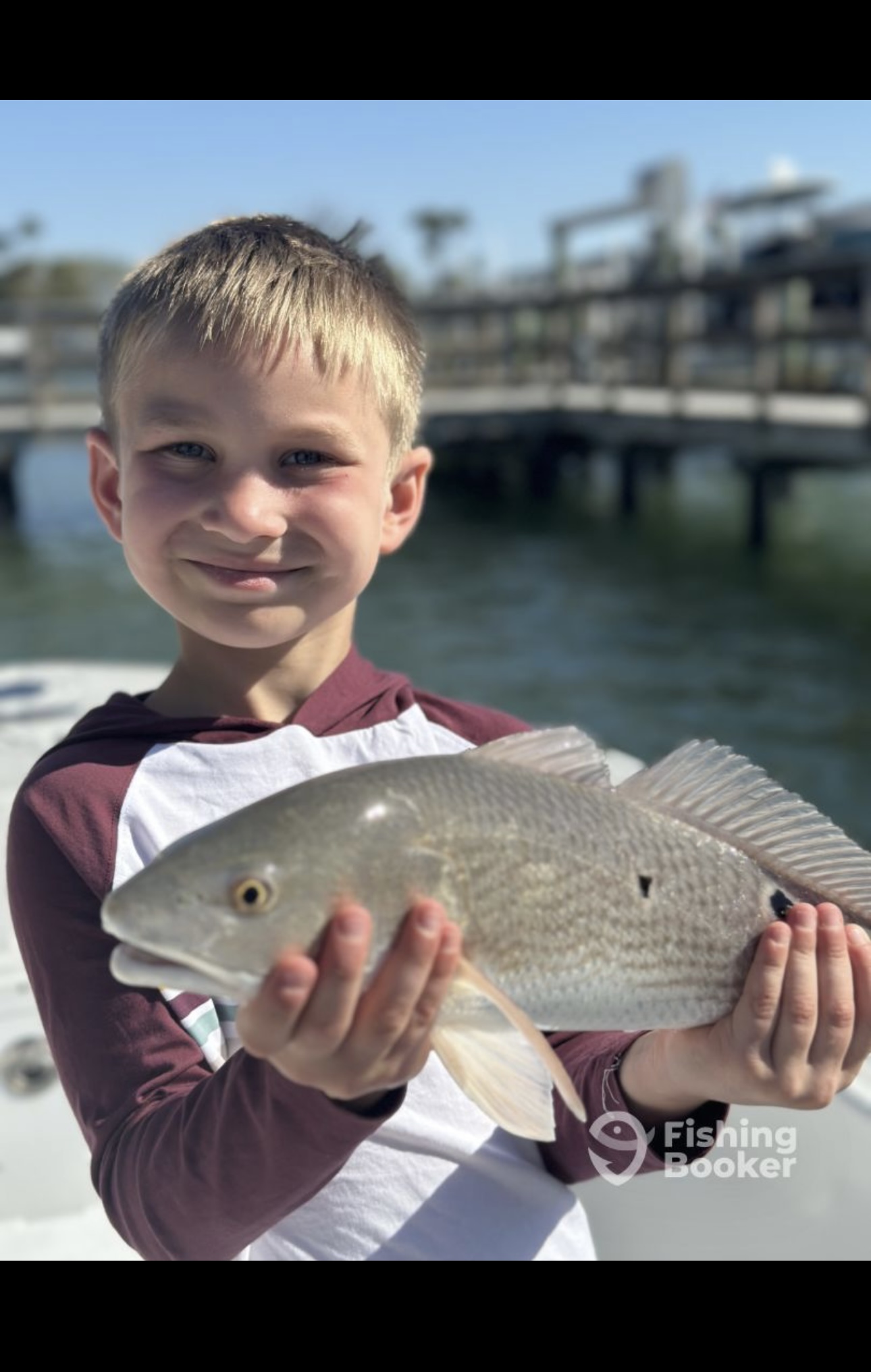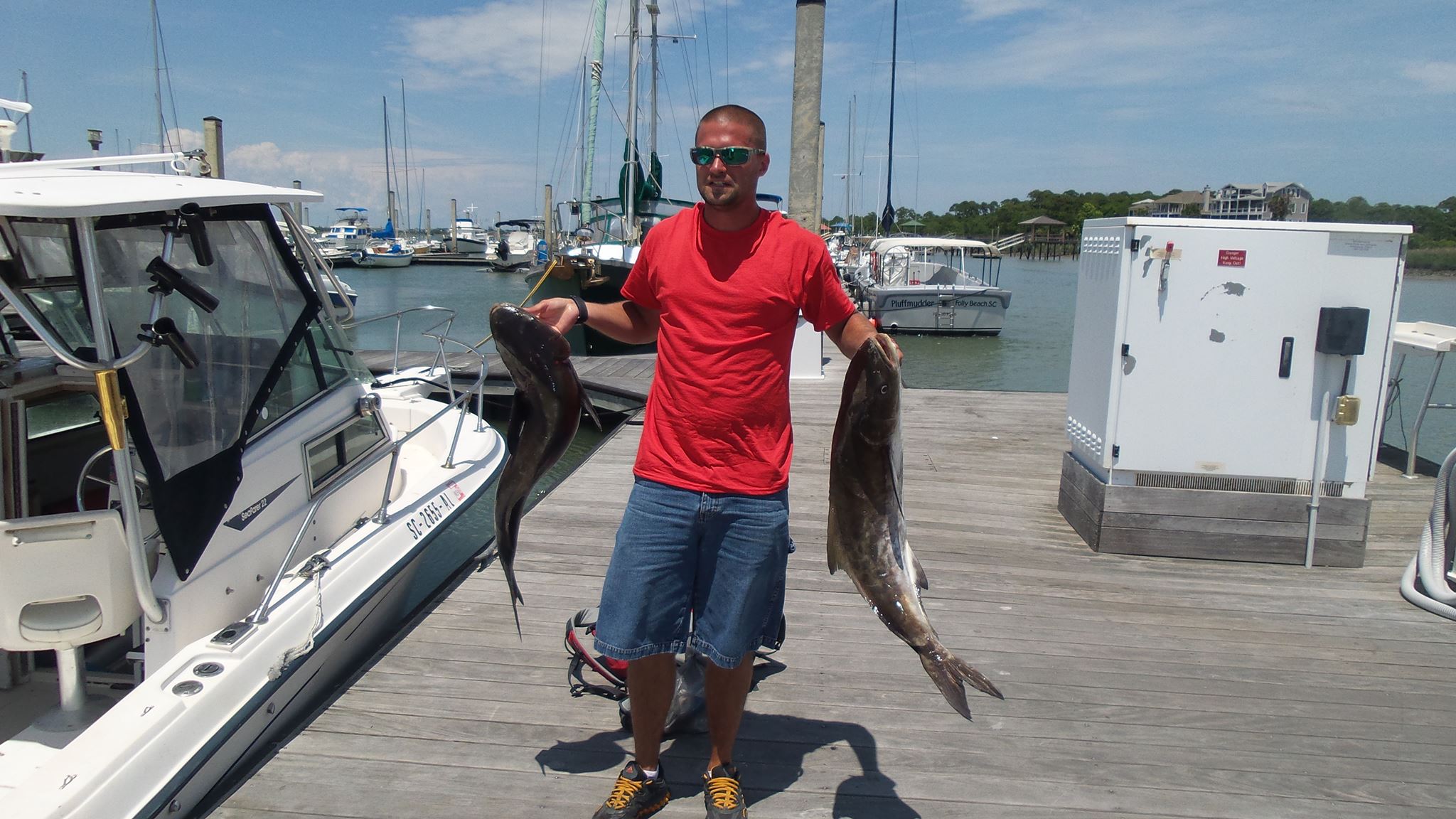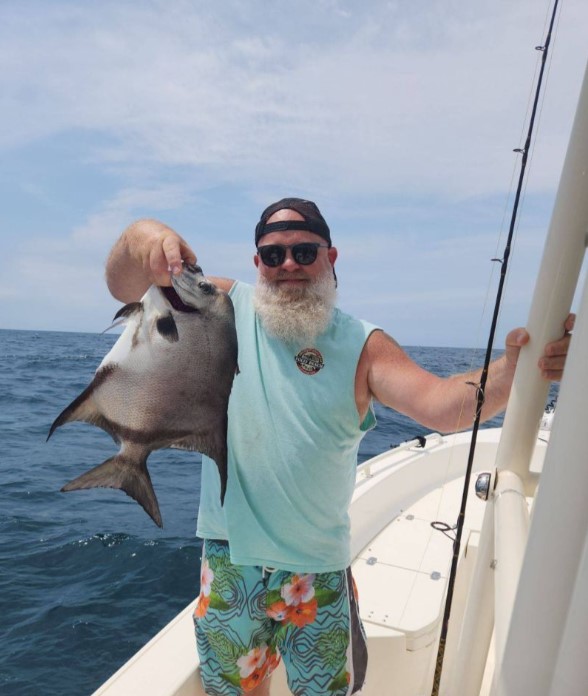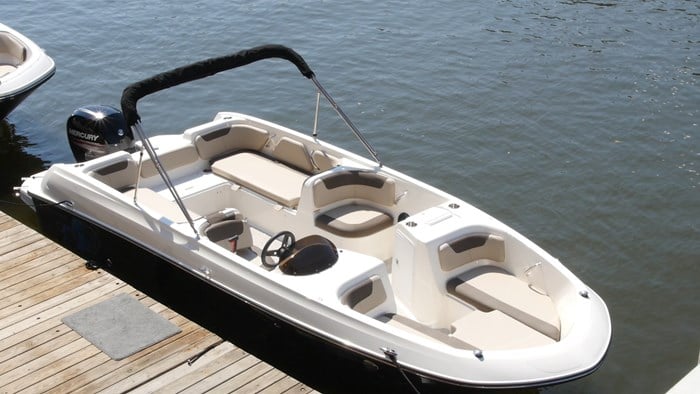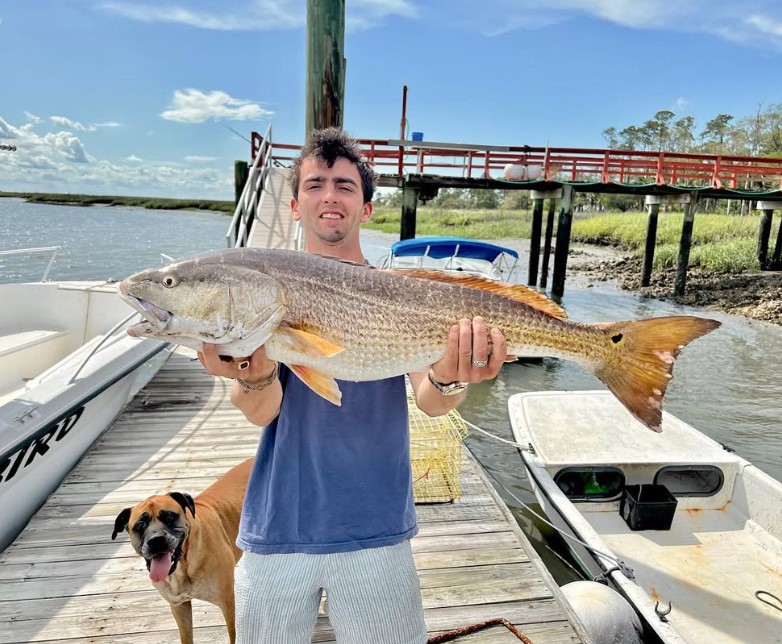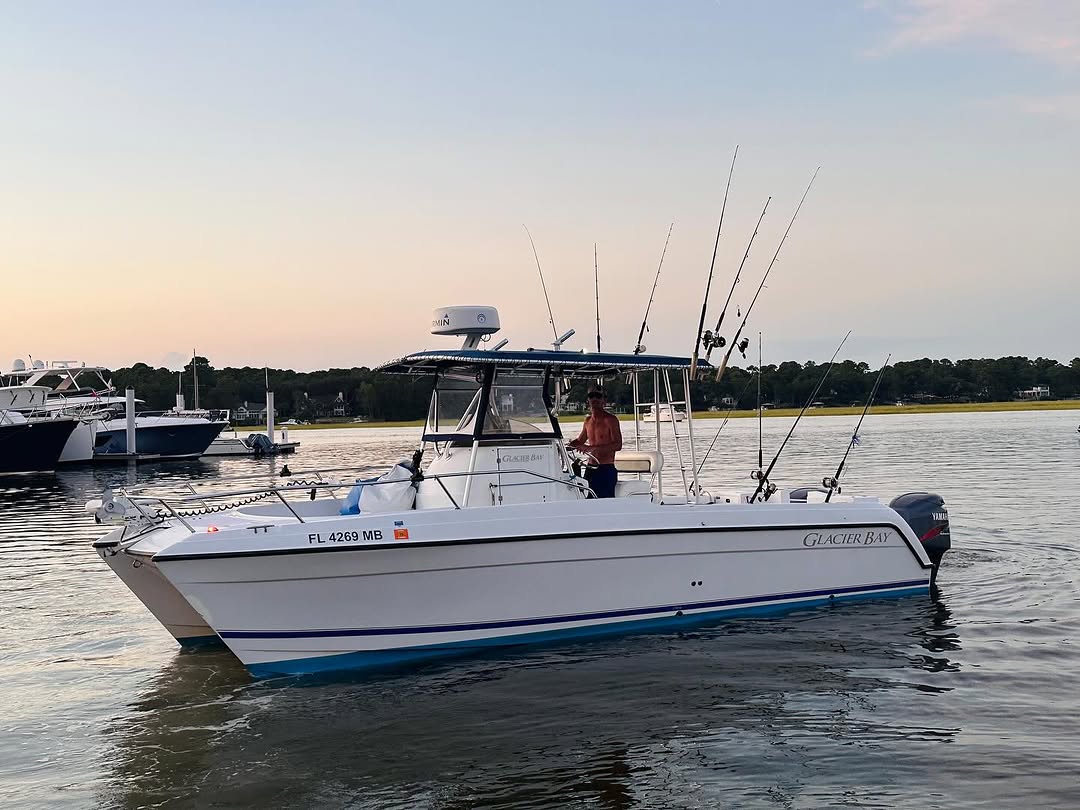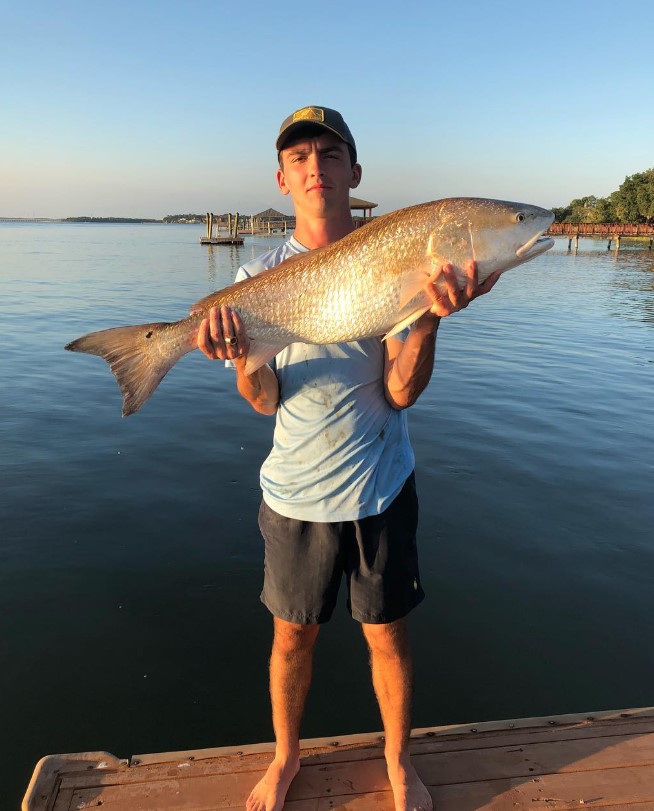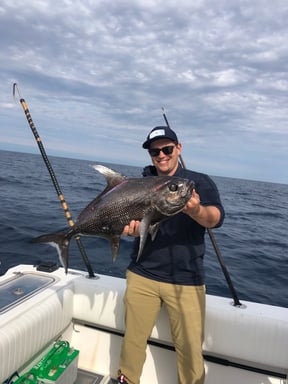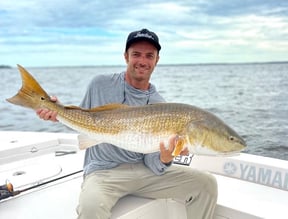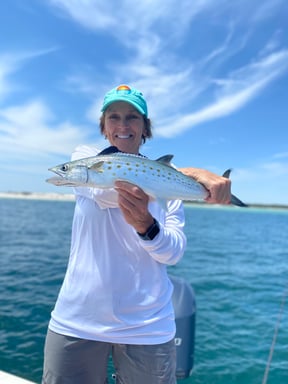Inshore, River, Flats in Jacksonville
Jacksonville - 4 Hr. River & Marsh
Inshore Fishing in Atlantic Beach
Inshore Fishing
Kayak Fishing The Flats
Inshore, Jetty, River in New Smyrna Beach
Inshore, Bridge And Inlet
Inshore, Jetty in Port Aransas
4 - Hour Rod Bending Jetty Trip
Inshore, Flats Fishing in New Smyrna Beach
Inshore Fishing Trip
4 Hour Inshore
Nearshore Fishing in Folly Beach
3-6 Hr "REEF" Trip
Inshore, Dolphin Watching in Hilton Head Island
Family Fishing & Dolphin Trip
Inshore Fishing in Hilton Head Island
Inshore Fishing
We started Captain Experiences to make it easy to book fishing and hunting guides around the world. With over 2,000 Damn Good Guides, our platform makes finding and booking a trip seamless. Head here to check out our trips.
Red Drum Overview
Red drum or redfish, are an inshore species native to the Gulf and Atlantic Coasts. Redfish get their name from the bronze to copper color that dominates their body, which also sports a distinctive black spot near the tail. On some redfish, this spot becomes a wild collage of spots as a result of recessive pigmentation genes and, to some anglers, these “leopard” reds are trophies on their own.
While there’s no denying redfish are handsome, the appeal of these fish stems from their formidable strength and remarkable size. Redfish have a cult following among anglers throughout their range.
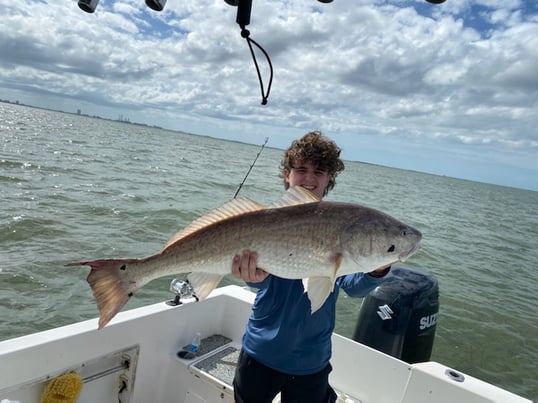
How big are redfish
Redfish get big fast, reaching adulthood at a length of 28 inches in only three to five years. A large redfish is considered to be anything over 30 inches, and at 40 inches, it’s the fish of a lifetime. While these giants do spend time in deeper water, the most popular place to catch them is in shallow bays and backwaters. Redfish are exciting fish to catch because even an average sized redfish will crush your bait and peel out line after the hook is set.
Fishing guides are some of the most loyal redfish fans and have expert insight on these magnificent fish. Captain Ryan of Folly Beach, SC said, “fighting a 30 inch redfish on light tackle, you will not get a better fight than that.” While they may not jump like tarpon or battle for hours like bluefin, pound-for-pound redfish put up a bullish fight that is every bit as stout. Landing a solid redfish is a rewarding experience, but to add to their allure, they’re also delicious table fare.
Bull Reds vs Redfish
A red drum over 30 inches is commonly called a bull redfish. These giants often leave inshore waters and head to deeper nearshore areas for most of the year. The only time you can count on these giant reds heading back into shallow bays and backwaters is to spawn.
When fall hits, bull redfish flood into inshore waters to eat and spawn, which anglers refer to as “the running of the bulls” or “pumpkin season.” Bull redfish measuring over 30 and sometimes 40 inches are not uncommon during the fall run, making it the best time to catch that trophy-sized fish.
When to Catch Redfish
Depending on who you ask, the best time to target redfish is either (a) anytime you can or (b) in the fall. In reality, both answers are true, but they don’t capture the big picture. Redfish are found throughout the Gulf of Mexico and along the Atlantic Coast, but year-round populations are usually confined to the waters south of Virginia. From Texas to North Carolina, shielded warm waters and abundant food sources allow redfish to stay put, and anglers to target them anytime.
Captain Alan of Rockport, TX summarizes it best saying, “these fish live here year round and have to eat, but the biggest reds show up in the fall to spawn.”
Joey Butrus
Updated on July 28, 2023
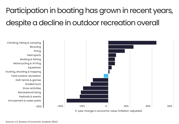
June 28, 2023
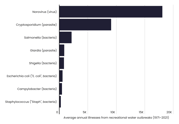
July 1, 2024

May 13, 2024
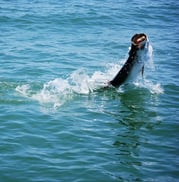
April 15, 2022

October 26, 2020
Related Articles
August 2, 2023
August 28, 2022
June 12, 2024
Featured Locations
- Fishing Charters Near Me
- Austin Fishing Guides
- Biloxi Fishing Charters
- Bradenton Fishing Charters
- Cabo San Lucas Fishing Charters
- Cancun Fishing Charters
- Cape Coral Fishing Charters
- Charleston Fishing Charters
- Clearwater Fishing Charters
- Corpus Christi Fishing Charters
- Crystal River Fishing Charters
- Dauphin Island Fishing Charters
- Daytona Beach Fishing Charters
- Destin Fishing Charters
- Fort Lauderdale Fishing Charters
- Fort Myers Fishing Charters
- Fort Walton Beach Fishing Charters
- Galveston Fishing Charters
- Gulf Shores Fishing Charters
- Hatteras Fishing Charters
- Hilton Head Fishing Charters
- Islamorada Fishing Charters
- Jacksonville Fishing Charters
- Jupiter Fishing Charters
- Key Largo Fishing Charters
- Key West Fishing Charters
- Kona Fishing Charters
- Lakeside Marblehead Fishing Charters
- Marathon Fishing Charters
- Marco Island Fishing Charters
- Miami Fishing Charters
- Montauk Fishing Charters
- Morehead City Fishing Charters
- Naples Fishing Charters
- New Orleans Fishing Charters
- New Smyrna Beach Fishing Charters
- Ocean City Fishing Charters
- Orange Beach Fishing Charters
- Panama City Beach Fishing Charters
- Pensacola Fishing Charters
- Pompano Beach Fishing Charters
- Port Aransas Fishing Charters
- Port Orange Fishing Charters
- Rockport Fishing Charters
- San Diego Fishing Charters
- San Juan Fishing Charters
- Sarasota Fishing Charters
- South Padre Island Fishing Charters
- St. Augustine Fishing Charters
- St. Petersburg Fishing Charters
- Tampa Fishing Charters
- Tarpon Springs Fishing Charters
- Venice Fishing Charters
- Virginia Beach Fishing Charters
- West Palm Beach Fishing Charters
- Wilmington Fishing Charters
- Wrightsville Beach Fishing Charters
